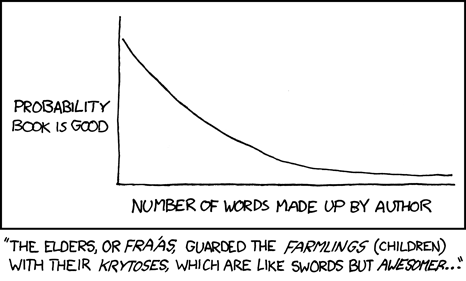In my WIP (sorry, I mean, Work In Progress), I've got a scene between two civil servants. One of them mentions to the other that he's doing some some work for the CSA.
Now, anyone want to have a stab at what the CSA is?
No?
It's the Government's Chief Scientific Advisor. Now, in civil service circles (in which I, er, revolve) no-one would ever actually say "I'm doing some work for the Government's Chief Scientific Advisor." They'd say, of course, "I'm doing something for the CSA." It's a known quantity.
But what about when I'm writing something and want the dialogue to remain realistic in this sense, but am endangering alienating or confusing the reader? What to do?
Just to mention, I have mentioned the fact that the CSA is the Chief Scientific Advisor earlier in the piece, but it's the sort of thing that could get forgotten.
Advice, please!
Now, anyone want to have a stab at what the CSA is?
No?
It's the Government's Chief Scientific Advisor. Now, in civil service circles (in which I, er, revolve) no-one would ever actually say "I'm doing some work for the Government's Chief Scientific Advisor." They'd say, of course, "I'm doing something for the CSA." It's a known quantity.
But what about when I'm writing something and want the dialogue to remain realistic in this sense, but am endangering alienating or confusing the reader? What to do?
Just to mention, I have mentioned the fact that the CSA is the Chief Scientific Advisor earlier in the piece, but it's the sort of thing that could get forgotten.
Advice, please!


